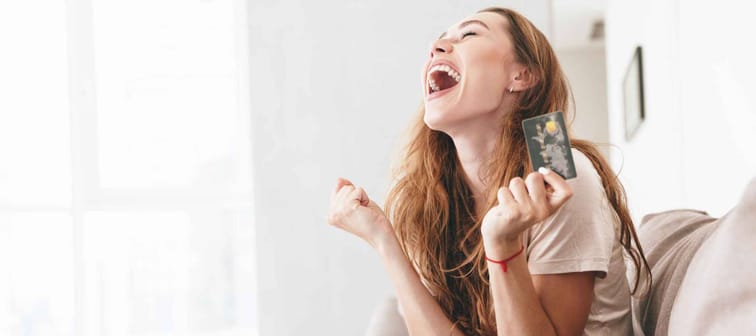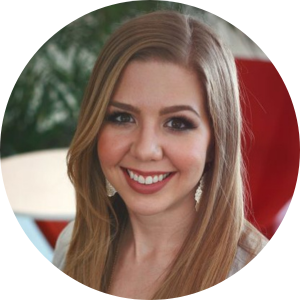Treat yourself to a big-ticket item
Surprise! One of the first things you can, and should do after paying off debt is treat yourself. Let’s be honest; it took a lot of discipline and curbing spending habits in order to get to this stage, so treating yourself, in good moderation, is a great way to start!
Use the money you were previously allocating towards debt repayment to buy yourself something special before you move on to your next financial goal. Ideally, this should be a “big ticket” item that is the equivalent of 1 to 2 months’ worth of your prior debt payments, like a new laptop or upgrading your phone.
For example, if you were previously putting $600/month towards debt, next month take the spare $600, or save up $1,200 over two months and treat yourself! Make sure, however, that this doesn’t send you off into a downward spiral. This expense should be one-time use only, and not become a new habit.
Add some discretionary spending to your monthly budget
Now that your debt is no longer an expense in your budget, you have a little more wiggle room. While it would be nice to follow the advice above and keep treating yourself indefinitely, going forward, you want to split your extra cash flow between your regular expenses and your savings goals.
How you’d like to split this amount between spending and savings is up to you, but you can start by splitting it 50/50. So, if you’ve been spending $500/month paying off debt, put $250 back into your budget and allocate the remaining $250 to long-term savings.
Adding a few hundred dollars back into your budget will let you enjoy day-to-day life a little more. Do something that will make your everyday feel a little bit more luxe: upgrade your cable package, enjoy lattes again, and stop saying no to nights out with friends.
However, you should only allocate part of your newly freed up cash flow for this purpose. It might be tempting to use all the money to upgrade your life on every front, but that’s a bad long term financial move. Try to find balance between lifestyle inflation and the rest of your financial goals.
Re-assess the rest of your finances
Now is a good time to make sure your financial house is in order. Now that you’re life’s budget won’t include a debt payment, there are so many fronts you can assess for improvements and expenses you can trim down to minimal payments.
Insurance
Life insurance or critical illness and disability insurance policies is a great place to start. Consider your coverage; does it need to expand? Maybe your debt payments took away from the coverage you were able to get due to the minimal payments you were able to make. Not anymore! You’ll probably want to upgrade your policy now that you are able to afford it.
Retirement
No matter what age you’re at, retirement will come, and you should be prepared for it. Consider beginning to save for retirement with this newly (re)acquired lump sum, like in an RRSP for example. Choose a monthly amount to be put aside for your future and be consistent in putting that money away.
Pay off your finances faster
Got a mortgage? Financed a car or a big item you bought yourself? Still paying off your student loans? How great is it that you’re out of debt and can now attend to these financial responsibilities?! Assess which of the payments requires the most of your attention and start to increase the amount you’re paying in order to get rid of that expense faster.
Make a will
Without all your extra debt payments, you’ll have a lot more money to play with each month. Whether you decide to put this money into RRSPs or save for a down payment on a house, we strongly consider you get a will to protect your assets. A will ensures that your money and/or property are kept within your family (or wherever else you’ll want your assets to go) if something were to happen to you.
Creating a will doesn’t have to be complicated: An online website like Willful can help you put together a completely customized will in about 20 minutes. Prices start at $99.
Being debt-free is a big change to your day-to-day and long-term finances, so spend some time looking at the whole picture.
What NOT to do after you’re debt-free
After you’ve buckled down to vanquish a large balance, you might finally feel so free… you go rack up a new balance. One of the worst things you can do after becoming debt-free is to go back into debt again. And yet many people do! Here’s how to avoid it:
DON’T give up your best budgeting practices
When you were paying off your debt, you probably made a number of changes to your behavior to meet your goals. Maybe you stopped using credit cards entirely, or you picked up a side hustle to earn extra income. Now that you’re debt free, don’t stop the tasks that got you the best bang for your buck! Continue to spend only cash and redirect extra income from a side job to a savings goal instead.
DON’T stop looking for ways to save money
With a large debt balance hanging over your head, you probably felt guilty any time you allocated a dollar elsewhere. Now that you don’t feel like every dollar of disposable income could be spent on your debt, you might start getting careless with your spending. Even though you don’t have to clip coupons or price shop, you still should. Just because you’re debt-free doesn’t mean you should overpay for things!
DON’T finance a major purchase
One of the most dangerous lines of thinking once you’re debt-free is that having debt “wasn’t so bad”, so you go into debt again for something you want. For example, maybe after tackling $40,000 in student loans, you start shopping for a $40,000 car. After all, you paid that amount off before and survived, why not do it again?
But taking on new debt right after paying one off, is the same as never getting out of debt at all. Try to remember that even though you successfully paid off all your debt, you never liked it!
Final thoughts on a debt-free life
The biggest benefit of being debt-free is being stress-free (or at least much less stressed) about your finances. Although my debt-freedom came at a later stage in life, the stress it relieved was equally comforting. No matter what you do with your money after you’ve paid off all your debts, the most important thing is that you enjoy your financial freedom, remain financially responsible and keep building your net worth!






